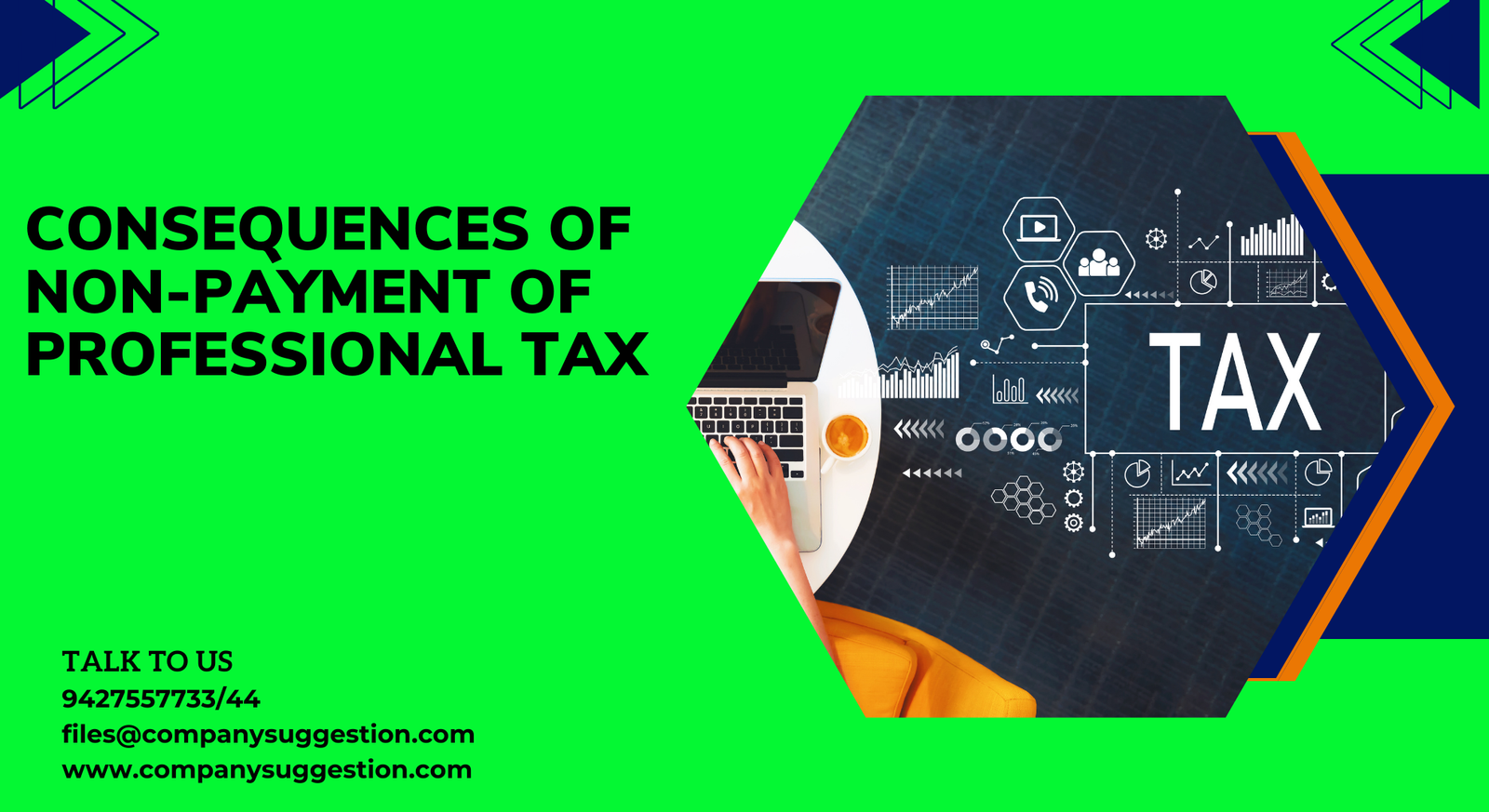CONSEQUENCES OF NON-PAYMENT OF PROFESSIONAL TAX
Professional tax is a tax levied by some state governments in India on individuals engaged in various professions, trades, and employments. It is regulated by the respective state governments and the rates may vary from one state to another.
The professional tax is typically imposed on individuals who earn an income by means of employment, profession, trade, or calling. Employers are responsible for deducting this tax from the salaries of their employees and remitting it to the state government.
The amount of professional tax varies based on factors such as the income level, nature of profession, and the state’s regulations. It is usually levied on a monthly or annual basis, depending on the state’s rules.
Professional tax serves as a source of revenue for state governments and helps in funding various development projects and initiatives within the state.
It’s important for individuals and employers to comply with the professional tax regulations of the respective state to avoid penalties and legal consequences. Additionally, professional tax laws and rates may change over time, so it’s advisable to stay updated with the latest regulations.
Exemption from professional tax
Exemptions from professional tax vary from state to state in India, as professional tax is levied and regulated by individual state governments. However, certain general exemptions may apply across states:
- Low-Income Threshold: Many states exempt individuals whose income falls below a certain threshold from paying professional tax. This threshold varies from state to state and may change over time.
- Certain Professions: Some states provide exemptions to specific professions or categories of workers. For example, certain categories of handicapped individuals or those engaged in certain types of professions may be exempt from professional tax.
- Senior Citizens: In some states, senior citizens may be exempt from professional tax. The age at which this exemption applies and the conditions for eligibility may vary.
- Honorarium: Individuals receiving honorarium or nominal payments for their services may be exempt from professional tax in some states.
- Government Employees: In many states, government employees are exempt from professional tax. This exemption typically applies to individuals employed by the central or state governments, local bodies, or other government entities.
- Pensioners: Some states may exempt pensioners from professional tax.
Consequences of non-payment of professional tax
The consequences of non-payment of professional tax in India can vary depending on the laws and regulations of the specific state where the tax is applicable. However, some common consequences may include:
- Penalties: Non-payment or late payment of professional tax can result in the imposition of penalties by the tax authorities. Penalties may be in the form of fines or additional fees, and they can accumulate over time if the tax remains unpaid.
- Interest Charges: In addition to penalties, interest charges may be levied on the outstanding professional tax amount. These interest charges typically accrue on the unpaid tax amount from the due date until the tax is paid in full.
- Legal Action: Tax authorities may take legal action against individuals or businesses that fail to pay professional tax. This can include issuing legal notices, seizing assets, or taking other legal measures to recover the unpaid tax amount.
- Inability to Obtain Certificates: Non-payment of professional tax may result in individuals or businesses being unable to obtain certain certificates or licenses required for conducting business activities. For example, businesses may be denied trade licenses or registration certificates if they have outstanding tax liabilities.
- Blacklisting: Non-compliant individuals or businesses may be blacklisted by the tax authorities, which can restrict their ability to participate in government contracts or access certain government benefits and services.
- Compounding Offenses: Continued non-payment of professional tax can lead to compounding offenses, where the penalties and consequences become more severe with each instance of non-compliance.
It’s important for individuals and businesses to adhere to professional tax regulations and make timely payments to avoid facing these consequences. Staying informed about tax obligations, maintaining accurate financial records, and seeking professional advice when necessary can help ensure compliance with professional tax laws and regulations.
Our experts of team will guide you related to compliances of Companies, Firms and other entities if you have any doubt regarding this, then you can send your doubts on company suggestion and clear it.













